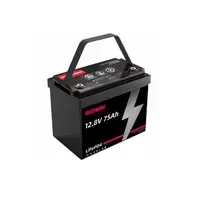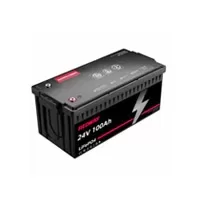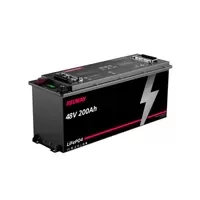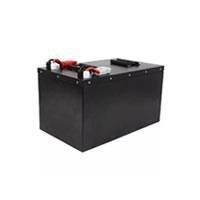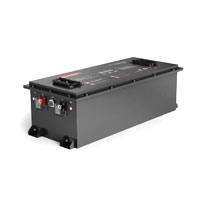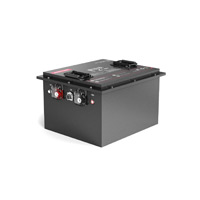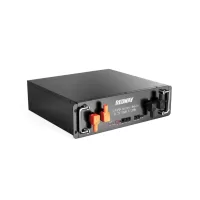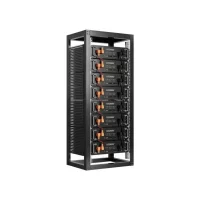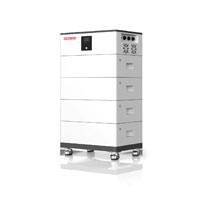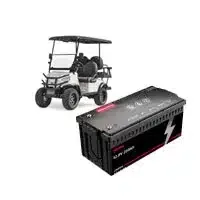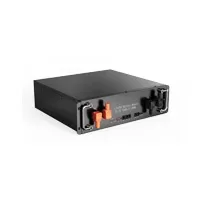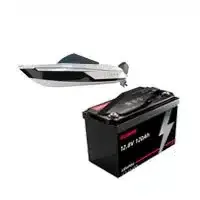Explore the world of lithium deep cycle batteries in our blog! Wondering if these innovative power sources can outlast lead-acid ones? This article delves into the benefits, compares lifespans, explores factors influencing longevity, offers tips for battery life, and guides you in choosing the right option. Let’s dive into the realm of enduring energy storage solutions!
Understanding Lithium Deep Cycle Batteries
Lithium deep cycle batteries, also known as lithium-ion batteries, are transforming energy storage with their rechargeable technology. Ideal for renewable energy systems and various applications, these batteries offer unique advantages that set them apart from traditional lead-acid options.
- Rechargeable Technology: Lithium deep cycle batteries use rechargeable technology involving the movement of lithium ions between electrodes. This design allows for multiple discharges and recharges without losing capacity, making them perfect for renewable energy systems and off-grid setups.
- High Energy Density and Efficiency: These batteries boast impressive energy density, providing more power in a smaller and lighter package than lead-acid alternatives. This not only saves space but also enhances efficiency in terms of weight distribution, a crucial factor in various applications.
- Long-Lasting Performance: Lithium deep cycle batteries exhibit an outstanding charge retention rate, losing minimal charge over time when not in use. This longevity ensures reliable and consistent power delivery, making them a reliable choice for applications where sustained performance is essential.
Understanding the characteristics and capabilities of lithium deep cycle batteries is vital for those considering them for energy storage. Their ability to deliver efficient, long-lasting power makes them a standout option for diverse applications, from renewable energy setups to recreational vehicles.
The Benefits of Lithium Deep Cycle Batteries
Lithium deep cycle batteries stand out for their compelling advantages, making them a preferred choice across diverse applications. From extended lifespan to high energy density, these batteries offer a host of benefits that cater to the evolving needs of various industries and individuals.
- Extended Lifespan: Lithium deep cycle batteries outshine lead-acid counterparts with a remarkable lifespan of up to 10 years or more. This longevity, coupled with proper care, exceeds the typical 3-5 years expected from traditional batteries.
- High Energy Density: With superior energy density, lithium batteries store more energy in a compact and lightweight form. This feature makes them perfect for applications where space and weight considerations are crucial, including RVs, boats, and off-grid solar power systems.
- Efficient Charge/Discharge: Lithium batteries exhibit a higher charge/discharge efficiency compared to lead-acid options. Consistent performance throughout the discharge cycle, without voltage drops or reduced capacity, sets them apart in delivering reliable power.
- Faster Charging Rate: Offering faster charging times, lithium deep cycle batteries allow for quick recharging without compromising their health. Their ability to handle higher currents ensures efficient charging, a valuable feature in time-sensitive scenarios.
- Superior Depth of Discharge: Lithium technology provides an impressive depth of discharge capability, allowing for up to 80% or even 90% discharge without affecting overall lifespan or performance. This flexibility enhances their adaptability to various usage patterns.
- Low Self-Discharge Rate: Lithium batteries exhibit a low self-discharge rate, retaining their charge significantly longer during periods of inactivity. This attribute contributes to their reliability, particularly in applications with intermittent usage.
In conclusion, the multifaceted advantages offered by lithium deep cycle batteries position them as a top choice for those seeking efficient, durable, and versatile power storage solutions. Whether it’s the extended lifespan, high energy density, or fast charging capabilities, these batteries cater to the evolving demands of modern energy storage needs.
Comparing Lifespan: Lithium vs Lead-Acid Batteries
Comparing the lifespan of batteries reveals a stark contrast between lithium deep cycle and lead-acid variants. This comparison becomes essential when evaluating the longevity and reliability of different energy storage options.
- Lithium Deep Cycle Batteries: Lithium batteries, renowned for their longevity, boast an impressive lifespan ranging from 10 to 15 years. This extended duration results from the advanced technology of lithium-ion batteries, allowing for numerous charge and discharge cycles without substantial degradation.
- Lead-Acid Batteries: In contrast, lead-acid batteries exhibit a shorter lifespan, typically lasting around 3 to 5 years. The traditional nature of these batteries contributes to a quicker decline in capacity and efficiency over time.
- Significant Difference in Longevity: The disparity in lifespan between lithium and lead-acid batteries is substantial. While lead-acid counterparts may necessitate replacement every few years, lithium deep cycle batteries can reliably power applications for over a decade.
- Influencing Factors: External factors, such as temperature fluctuations and depth of discharge, impact the overall longevity of both battery types. It’s crucial to acknowledge that improper use or neglecting maintenance routines can diminish the lifespan of any battery, regardless of chemistry.
- Clear Superiority of Lithium Technology: When comparing lifespans, lithium deep cycle batteries emerge as the clear winner in terms of durability and longevity. Ensuring proper care and adhering to recommended usage patterns further solidify the advantages of investing in high-quality lithium batteries for sustained power needs.
In conclusion, the comparison underscores the longevity benefits of lithium deep cycle batteries, making them a superior choice for those seeking extended and reliable energy storage solutions.
Factors Affecting the Longevity of Lithium Deep Cycle Batteries
The longevity of lithium deep cycle batteries is influenced by various factors. Understanding and addressing these factors are crucial for optimizing the performance and extending the lifespan of these advanced energy storage solutions.
- Depth of Discharge (DoD): The depth of discharge, indicating how much capacity is drained during each cycle, significantly impacts battery life. Shallow discharges (10-20% DoD) tend to promote a longer lifespan for lithium batteries.
- Temperature Considerations: Extreme temperatures, both high and low, can adversely affect lithium battery performance. High temperatures accelerate internal reactions, hastening degradation, while low temperatures reduce overall capacity. Maintaining a moderate temperature range is essential for optimal battery health.
- Proper Charging Practices: Adhering to correct charging practices is vital for maximizing lithium battery lifespan. Avoiding overcharging or undercharging by following manufacturer guidelines regarding charging rates and voltage limits helps prevent damage and extends overall battery life.
- Charge Cycle Impact: The number of charge cycles a lithium deep cycle battery undergoes affects its longevity. While each full charge-discharge cycle contributes to gradual deterioration, lithium batteries generally withstand more charge cycles compared to traditional lead-acid batteries.
- Maintenance and Care: Regular maintenance, including monitoring for signs of damage or abnormal behavior like swelling or overheating, is essential. Timely replacement when needed and proper storage practices, such as storing at partial state-of-charge, contribute to preserving battery capacity.
In conclusion, considering and addressing these factors enables users to optimize the performance and extend the lifespan of lithium deep cycle batteries, ensuring reliable and sustained power storage over time.
Tips for Increasing the Lifespan of Your Lithium Battery
Ensuring the longevity of your lithium battery is crucial for optimal performance and sustained power storage. By following these simple tips, you can maximize the lifespan of your lithium deep cycle battery and enjoy reliable power for all your needs.
- Proper Charging: Use a charger designed for lithium batteries and follow manufacturer instructions to avoid overcharging or undercharging. This fundamental practice helps maintain the battery’s health over time.
- Temperature Considerations: Keep your lithium battery within its optimal temperature range, avoiding exposure to extreme heat or cold. Storing the battery in a cool, dry place and shielding it from direct sunlight and freezing temperatures contributes to extended lifespan.
- Optimal Discharging: Unlike lead-acid batteries, lithium batteries benefit from avoiding frequent deep discharges. Aim to keep the battery charge between 20% and 80% whenever possible, optimizing its performance and lifespan.
- Regular Maintenance: Implement routine inspections for signs of damage or wear. Clean the battery terminals with a soft cloth and ensure secure connections. These simple maintenance steps contribute significantly to the overall longevity of the lithium battery.
- Proper Storage Practices: If storing the lithium battery for an extended period without use, ensure it has approximately 50% charge. This prevents self-discharge during storage and avoids the risk of overdischarge, which could cause permanent damage to the battery cells.
Remember, proper care and maintenance are key contributors to maximizing the lifespan of your lithium deep cycle battery, providing reliable and sustained power for all your energy needs.
Other Considerations When Choosing a Battery for Your Needs
Choosing the right battery involves considering factors beyond longevity. Here are key considerations to ensure your battery meets specific needs.
- Weight and Size: Lithium deep cycle batteries are renowned for their compact and lightweight design, ensuring easy installation and transport. This feature is particularly advantageous for applications where space and weight are critical factors.
- Charging Time: Lithium batteries offer a faster charging rate compared to lead-acid counterparts. This means reduced downtime waiting for your battery to charge, allowing you to spend more time engaged in your activities without unnecessary delays.
- Maintenance Requirements: Unlike lead-acid batteries with regular maintenance needs, lithium batteries are virtually maintenance-free. This translates to time and cost savings in the long run, as you won’t have to worry about tasks like fluid level checks and terminal cleaning.
- Safety Features: Lithium deep cycle batteries come equipped with built-in safety mechanisms such as overcharge protection and short-circuit prevention. These features ensure safe operation even in challenging conditions, providing peace of mind during use.
- Environmental Impact: Considering environmental concerns is crucial. Lead-acid batteries contain toxic materials, posing a threat to ecosystems if not disposed of properly. In contrast, lithium deep cycle batteries are considered more environmentally friendly due to their lower carbon footprint, aligning with sustainability goals.
In conclusion, a well-informed decision involves evaluating weight, size, charging time, maintenance requirements, safety features, and environmental impact. By considering these factors, you can select a battery that not only meets your power needs but also aligns with your sustainability objectives.


